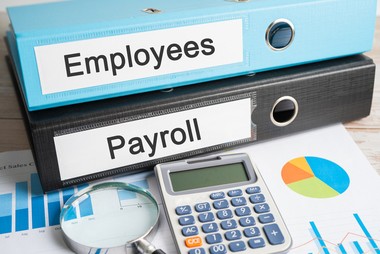Aug 27, 2024

Simple payroll errors are avoidable, but if you don’t pay attention, you could end up facing consequences that cost thousands of dollars in compliance penalties. Not only that but you might have to deal with unwanted attention on both you and your payroll department.
To mitigate the risks and minimize unfavorable outcomes, pay attention to every payroll-related deadline. Keep all action items for every pay period in mind, too.
The best way to do this is by implementing a payroll calendar. These are specifically designed to help companies create a budget and plan for compensation expenses in advance over the course of an entire year.
But how can you make payroll calendars work for you? And what should you do if you are concerned about missing deadlines?
How to ensure that your company adhere to a set payroll schedule
It’s best to arrange payroll dates for each a calendar year before the start of the year. That way, you can budget better while maintaining compliance with wage payment rules and regulations. And when you utilize a detailed payroll calendar, you can not only pay attention to actual payday dates but also pay period end dates, time sheet due dates and the workdays covered by each pay period.
Payroll calendars ensure that payroll-related administration tasks are completed on time. In turn, this ensures that all payroll delays are avoided.
When to make adjustments to payroll-related deadlines
Under certain circumstances, you might need to adjust your payroll calendar if one or more paydays fall on the same day as a holiday. Likewise, adjustments may be required in situations where payday for the last weeks of the year ends up landing on a day in the following year. Last but not least, if there are three pay periods in a given month but you operate on a biweekly pay period schedule, plan to adjust accordingly.
Tips for preparing a payroll calendar
Start by figuring out how frequently your company plans to issue paychecks to your employees. Biweekly pay periods are the most common payday schedule, though it all depends on pay frequency laws in your area, your business-related needs and the preferences of your employees.
With these details in mind, consider whether you’d like to pay your employees on a semi-monthly, monthly or weekly basis. It’s important to make this decision prior to finalizing your payroll calendar. Just make sure you double-check any and all state laws or local regulations to see if there are any pay frequency restrictions by which you must abide.
Two examples of common payroll schedules
There are two main pay period schedules that most companies implement, including biweekly and semi-monthly payroll schedules.
Biweekly payroll schedules
Biweekly payroll schedules pay employees on the same day. Typically the Friday of every other week, biweekly processing is beneficial, though it requires you to be flexible during those months where there are three paydays instead of the typical two pay dates.
Generally speaking, there are only 26 biweekly pay periods in a given year, but in some instances, you might find that there are actually 27 pay periods. Review how many paydays there will be in the upcoming year before you commit to a biweekly payroll schedule.
Semi-monthly payroll schedules
With semi-monthly payroll calendars, pay periods occur on the same date twice each month. This ends up being the 15th and the 30th or 31st. You might need to adjust your payroll calendar if the payday date falls on a weekend or a holiday as these are when banks are typically closed, so keep this in mind.
Payroll calendars serve a myriad of purposes ranging from serving as a visual tool to helping HR departments organize payroll. You can even implement a calendar to make the process of setting deadlines and communicating upcoming pay dates a lot easier.
It all comes down to scheduling pay dates so that you can improve the planning and budgeting protocols within your company. Plus, with a calendar, you can actively write out your payroll dates for the year. From there, you can take the necessary steps to ensure that you have the staffing and the financial resources needed to pay them.
For both short-term and long-term success, explore your payroll scheduling options.
©2024